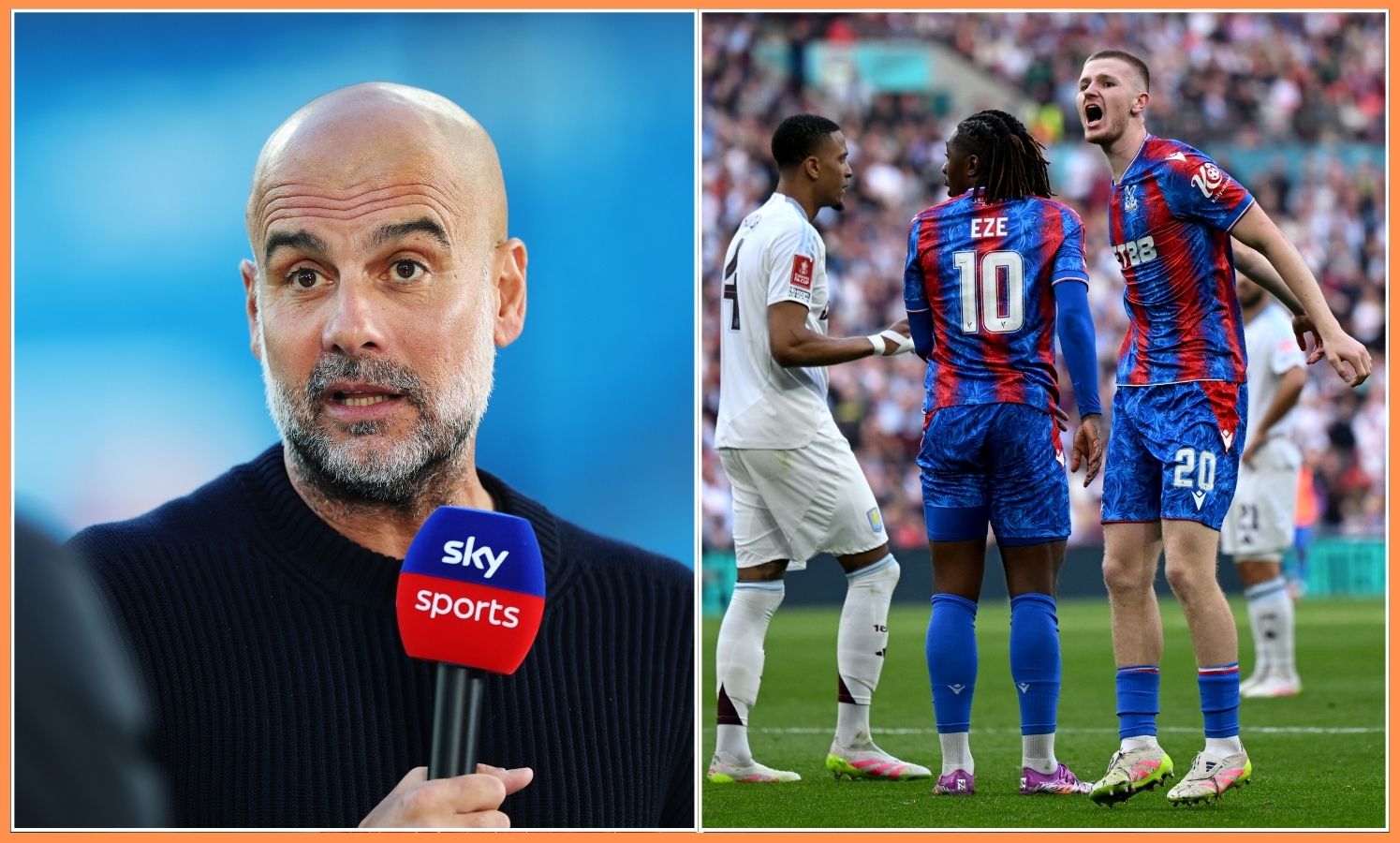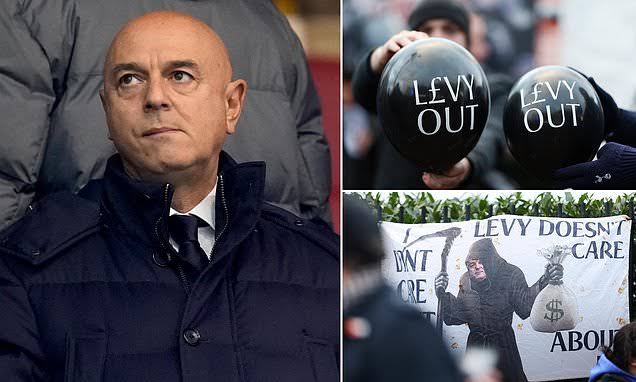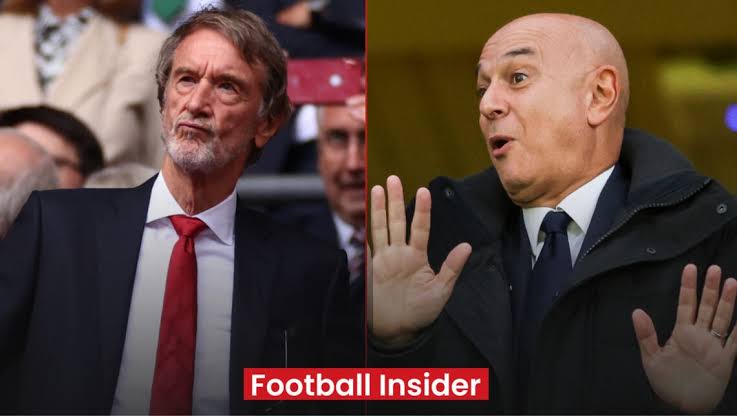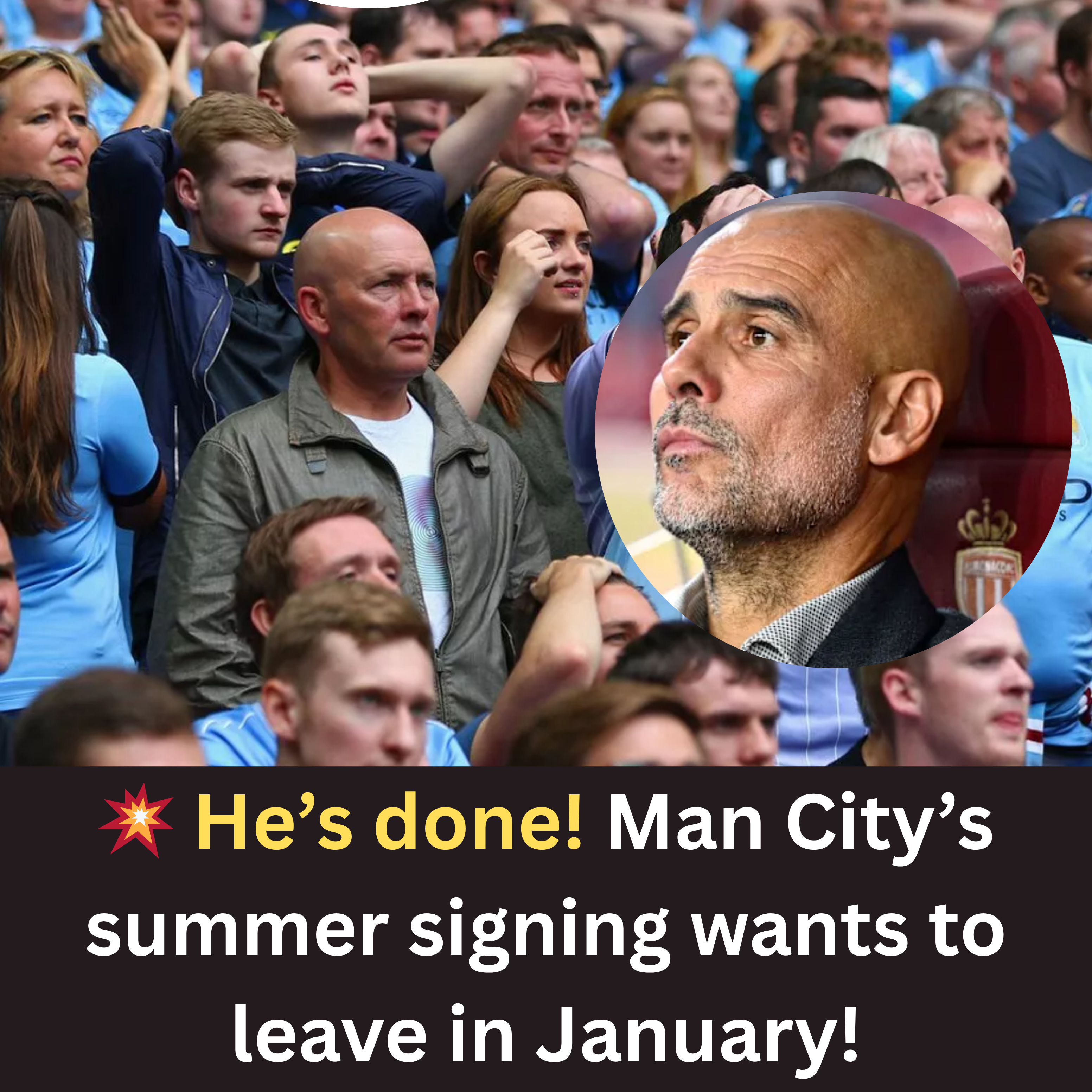Aston Villa make decision on accepting Man City offer for Morgan Rogers

The 2025 summer transfer window promises to be one of the most dramatic in recent Premier League history, with Manchester City facing unprecedented rejection in the transfer market while their cross-town rivals Manchester United grapple with internal discord that threatens to tear apart their squad. At the center of these unfolding dramas are two stories that perfectly encapsulate the shifting power dynamics in English football: City’s failed pursuit of Morgan Rogers and the growing unrest at Old Trafford under INEOS ownership.
These developments represent more than mere transfer speculation; they signal a fundamental shift in how Premier League clubs operate in an increasingly complex financial landscape. With Financial Fair Play regulations tightening and player power at an all-time high, even the most successful clubs are finding that money alone cannot guarantee success in the transfer market.
Manchester City’s Rare Transfer Setback
The End of an Era: De Bruyne’s Departure and City’s Response
Manchester City’s dominance over the past decade has been built on their ability to identify, pursue, and secure their primary transfer targets. Under Pep Guardiola’s stewardship, the club has rarely faced significant obstacles when it comes to recruiting players, making their current predicament all the more striking. The impending departure of Kevin De Bruyne represents the end of an era for City, with the Belgian maestro having been instrumental in the club’s unprecedented success.
De Bruyne’s influence extends far beyond mere statistics, though his numbers speak volumes about his importance to City’s system. Over his nine seasons at the Etihad Stadium, he has redefined the role of a modern playmaker, combining technical brilliance with tactical intelligence and an unmatched ability to deliver in crucial moments. His departure leaves a void that extends beyond the tactical—it removes a leader whose presence has been felt in every major triumph during Guardiola’s tenure.
The search for De Bruyne’s replacement has exposed some uncomfortable truths about City’s current position in the football hierarchy. Where once the prospect of playing under Guardiola and competing for the Premier League title was enough to attract virtually any player, the landscape has become considerably more complex.
The Wirtz Disappointment: A Preference for Liverpool
City’s primary target to replace De Bruyne was Bayer Leverkusen’s Florian Wirtz, a player widely regarded as one of Europe’s most promising attacking midfielders. The German international’s performances in the Bundesliga and Champions League had marked him out as the ideal candidate to fill the creative void left by De Bruyne’s departure. However, Football Insider’s revelation that City have “pulled the plug” on the deal represents a significant blow to their summer planning.
Wirtz’s preference for a move to Liverpool over Manchester City is particularly telling. The German’s decision appears to be influenced by several factors, including Liverpool’s recent resurgence under their new management structure and the appeal of being part of a project that feels fresh and ambitious. This preference highlights a concerning trend for City: their long period of dominance may have reached a plateau that makes them less attractive to some of Europe’s brightest talents.
The psychological impact of losing out on their primary target cannot be understated. For a club accustomed to getting their first-choice signings, the rejection serves as a wake-up call about their current standing in the European football hierarchy. It also raises questions about whether Guardiola’s eventual departure—a topic that continues to generate speculation despite his recent contract extension—may be influencing players’ decisions.
Morgan Rogers: The Alternative That Got Away
With Wirtz off the table, Manchester City turned their attention to Morgan Rogers, a player who represents both a sensible alternative and a compelling narrative. Rogers’ journey from City’s academy to Premier League stardom with Aston Villa embodies the kind of success story that often sees players return to their former clubs. His development through loans at West Bromwich Albion and Middlesbrough before finding his home at Villa Park demonstrates the patience and perseverance required to succeed at the highest level.
Rogers’ transformation under Unai Emery has been nothing short of remarkable. The 23-year-old has evolved from a promising Championship player into an England international, showcasing the kind of technical ability and tactical intelligence that made him attractive to City’s academy in the first place. His performances in both the Premier League and Champions League have established him as one of the most exciting young talents in English football.
However, City’s approach for Rogers has encountered the same resistance that characterized their pursuit of Wirtz. Aston Villa’s decision to reject any potential offers for their star player reflects both their ambition and their understanding of his value to their project. Rogers has become integral to Emery’s system, offering the kind of versatility and creativity that makes him almost irreplaceable.
Aston Villa’s Firm Stance: Refusing to Entertain Offers
Aston Villa’s position regarding Morgan Rogers reveals the changing dynamics of the modern transfer market. Despite facing potential Financial Fair Play constraints that may force them to sell players this summer, Villa have identified Rogers as untouchable—a clear indication of his importance to their long-term plans.
Unai Emery’s influence in this decision cannot be overstated. The Spanish coach has built his reputation on developing players and creating cohesive team units, and Rogers represents the perfect example of his methods. Under Emery’s guidance, Rogers has not only improved his individual game but has also become a crucial tactical component in Villa’s system.
Villa’s Champions League qualification has fundamentally altered their position in the transfer market. No longer are they a selling club looking to cash in on their best assets; instead, they have become a destination for ambitious players and a club capable of retaining their star performers. This transformation has been years in the making, but it represents a seismic shift in the Premier League’s power structure.
The club’s ability to resist offers from Manchester City also reflects the broader financial stability that has characterized Villa’s recent operations. Their ownership group has demonstrated a commitment to building something sustainable, rather than simply profiting from player sales. This long-term vision has created an environment where players like Rogers can see a genuine future at the club.
The Broader Impact on City’s Transfer Strategy
City’s difficulties in securing their primary targets extend beyond individual disappointments to reveal broader challenges facing the club. The emergence of Arsenal as competitors for Morgan Gibbs-White—another of City’s alternative targets—suggests that their problems may be systemic rather than isolated incidents.
These setbacks force Guardiola and the City hierarchy to reconsider their approach to the transfer market. The days of simply identifying a target and expecting to secure their signature may be over, replaced by a more competitive landscape where clubs must work harder to convince players of their project’s merits.
The situation also raises questions about City’s long-term planning. With several key players entering the latter stages of their careers, the club faces a significant rebuilding challenge that may require a different approach than the one that brought them such success in recent years.
Manchester United’s Internal Crisis
INEOS Ownership: Promise and Problems
Manchester United’s acquisition by INEOS was supposed to herald a new era of competence and success at Old Trafford. The petrochemicals giant’s involvement promised the kind of strategic thinking and financial backing that could restore United to their former glory. However, the reality of INEOS ownership has proven more complex than many anticipated.
The cost-cutting measures implemented by INEOS have created significant tension within the squad, with senior players reportedly expressing frustration at the direction of the club. These measures, while potentially necessary from a financial perspective, have created an atmosphere of uncertainty that extends far beyond the balance sheets.
Jim Ratcliffe’s vision for Manchester United involves significant structural changes, but the implementation of these changes appears to have created more problems than solutions in the short term. The disconnect between the ownership’s plans and the players’ expectations has created a toxic environment that threatens to undermine any potential progress.
Bruno Fernandes: The Captain’s Dilemma
Bruno Fernandes’ situation epitomizes the broader crisis at Manchester United. The Portuguese midfielder has been one of the few consistent performers during the club’s recent struggles, contributing 19 goals and 17 assists across all competitions this season. His statistics represent remarkable productivity for a player operating in a dysfunctional team environment.
However, Fernandes’ individual excellence cannot mask his growing frustration with the club’s direction. His post-match comments following the Europa League final defeat suggested a player who has reached the end of his patience with United’s inability to compete at the highest level. His admission that he would understand if the club decided to sell him represents a significant moment in his relationship with the institution.
The captain’s potential departure would represent more than just the loss of a talented player; it would signal the end of an era and raise serious questions about United’s ability to retain their best performers. Fernandes has been the face of United’s recent campaigns, and his exit would create a leadership vacuum that would be difficult to fill.
Saudi Arabia Interest: The £80 Million Temptation
Al Hilal’s reported £80 million interest in Bruno Fernandes represents the kind of offer that could prove difficult for Manchester United to refuse, particularly given their current financial constraints. The Saudi Pro League’s aggressive recruitment strategy has already lured several high-profile players away from European football, and Fernandes could be the next to succumb to the financial temptation.
For Fernandes, the move would represent a significant financial upgrade and the opportunity to become the face of Saudi football’s continued expansion. At 30 years old, he may view this as his final opportunity to secure a transformative contract that could set up his family for generations.
From United’s perspective, the £80 million fee would provide significant resources for squad rebuilding, but it would also represent an admission of failure. Losing their captain and best player to a league outside of Europe’s elite competitions would be a devastating blow to their reputation and ambitions.
Ruben Amorim’s Impossible Task
Ruben Amorim’s appointment as Manchester United manager was supposed to bring fresh ideas and tactical innovation to Old Trafford. The Portuguese coach’s success at Sporting CP had marked him out as one of Europe’s most promising young managers, and his arrival generated genuine optimism among United supporters.
However, Amorim has inherited a situation that may be beyond any manager’s ability to resolve quickly. The structural problems at United extend far beyond tactics and team selection, encompassing everything from player recruitment to training ground facilities. His reported efforts to retain Fernandes demonstrate an understanding of the player’s importance, but they also highlight the precarious position he finds himself in.
The manager’s ability to navigate these challenges will be crucial to United’s short-term future. His reputation as a developer of young talent and creator of cohesive team units offers hope, but the scale of the task facing him cannot be understated.
The Europa League Final: A Defining Moment
Manchester United’s 1-0 defeat to Tottenham Hotspur in the Europa League final represented more than just another trophy disappointment; it symbolized the gulf between the club’s ambitions and their current reality. The loss denied United their first major trophy under INEOS ownership and raised serious questions about the direction of the project.
The defeat also had significant financial implications, with Champions League qualification through European success now off the table. This adds pressure to their final Premier League fixture against Aston Villa, with the club potentially facing a 17th-place finish if results go against them.
The psychological impact of the defeat on the squad has been profound, with reports suggesting that morale has reached rock bottom. This creates additional challenges for Amorim as he attempts to rebuild confidence and implement his tactical ideas.
The Broader Context: Premier League’s Changing Landscape
Financial Fair Play and Its Impact
The cases of both Manchester City and Manchester United illustrate the growing influence of Financial Fair Play regulations on Premier League clubs. These rules have created a more complex transfer environment where clubs must balance their ambitions with financial sustainability.
For City, their historical spending patterns are now coming under greater scrutiny, potentially limiting their ability to simply outbid competitors for top targets. The club’s approach to transfers may need to become more strategic and selective, focusing on players who offer the best value rather than simply the highest profile.
United’s situation demonstrates how FFP can create additional pressures for underperforming clubs. Their lack of Champions League revenue combined with their wage bill creates a challenging financial position that limits their options in the transfer market.
The Rise of Alternative Destinations
The Premier League’s traditional dominance in attracting top talent is facing new challenges from unexpected sources. The Saudi Pro League’s aggressive recruitment strategy has created genuine competition for established European leagues, while clubs like Aston Villa have emerged as legitimate alternatives to traditional powerhouses.
This changing landscape requires all Premier League clubs to reconsider their approach to player recruitment and retention. The assumption that players will automatically choose established clubs over emerging alternatives is no longer valid, creating a more competitive and unpredictable transfer market.
Looking Ahead: Summer Transfer Implications
Manchester City’s Rebuilding Challenge
City’s summer transfer window will be crucial in determining their ability to maintain their position at the top of English football. The club must identify and secure alternative targets for their midfield rebuild while also addressing other areas of the squad that may need attention.
The psychological impact of their recent rejections may actually benefit City in the long term, forcing them to be more creative and strategic in their approach. This could lead to the identification of undervalued targets who may prove to be better signings than their original choices.
Manchester United’s Crossroads
United face perhaps the most critical summer in their recent history. The potential departure of Bruno Fernandes would accelerate their rebuilding process, but it would also remove one of the few elements of stability in their current squad.
The club’s ability to navigate this crisis will determine whether INEOS ownership can deliver on its promises or whether United will face another period of decline. The decisions made this summer will have consequences that extend far beyond the upcoming season.
Conclusion: A Transformative Summer Ahead
The stories of Manchester City’s failed pursuit of Morgan Rogers and Manchester United’s internal crisis represent more than isolated incidents; they illustrate the complex challenges facing even the most successful Premier League clubs in the modern era. The combination of Financial Fair Play regulations, increased competition for top talent, and changing player expectations has created an environment where traditional assumptions about the transfer market no longer apply.
For City, the summer will test their ability to adapt to a more competitive landscape while maintaining their standards of excellence. Their response to these setbacks will define their prospects for the coming seasons and potentially influence Guardiola’s own future at the club.
United’s situation is more immediately precarious, with fundamental questions about the club’s direction and the satisfaction of their best players. The resolution of the Bruno Fernandes situation will serve as a barometer for INEOS’s ability to stabilize and rebuild one of football’s most iconic institutions.
As the summer transfer window approaches, both clubs face challenges that will test their resolve, creativity, and long-term vision. The outcomes will not only shape their individual futures but also contribute to the ongoing evolution of the Premier League’s competitive landscape. In an era where success can no longer be guaranteed through financial might alone, both Manchester clubs must prove their relevance through strategic thinking, cultural development, and the ability to adapt to football’s rapidly changing dynamics.
The 2025 summer transfer window may well be remembered as a turning point—not just for these two clubs, but for the entire structure of English football’s elite tier.















